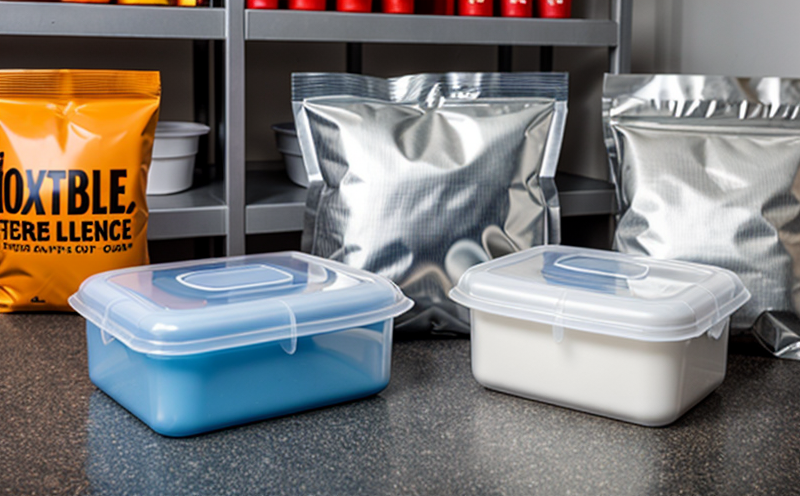ISO 11339-2 Heat Seal Sealability Testing
The ISO 11339-2 heat seal sealability test is a critical procedure designed to evaluate the integrity and reliability of heat-sealed joints in flexible packaging materials. This test ensures that seals are strong enough to withstand environmental stresses without compromising the barrier properties or structural integrity of the package.
The process involves subjecting the sealed joint to specified temperature, time, and force conditions to simulate real-world stressors such as storage temperatures, handling, and shelf-life. The primary goal is to ensure that the heat seal remains intact under various environmental conditions, thereby protecting the packaged contents from contamination or degradation.
The test is especially important for packaging materials used in food, pharmaceutical, and industrial applications where integrity of seals can significantly impact product quality and safety. Compliance with this standard helps manufacturers meet regulatory requirements and ensure product reliability across different market segments.
Before conducting the test, it's essential to prepare the specimens correctly. The method involves selecting a representative sample from the batch or production run, ensuring that any variations in seal quality are captured. Specimens should be cut to standard dimensions and conditioned according to ISO 11339-2 specifications. This preparation ensures accurate results and consistency across tests.
The test itself typically involves placing the specimen under specified thermal conditions for a set duration, followed by applying force to break the seal. The integrity of the seal is then evaluated based on visual inspection or quantitative measurement tools such as tensile strength gauges. The standard specifies detailed protocols for this evaluation process.
Understanding the results from ISO 11339-2 testing is crucial for quality assurance teams and R&D engineers. It allows them to identify potential weaknesses in their packaging designs, enabling timely adjustments to improve seal integrity. This not only enhances product safety but also optimizes production processes by minimizing defects.
By adhering strictly to ISO 11339-2 guidelines, companies can demonstrate compliance with international standards, thereby gaining market access and improving customer trust. The test is widely recognized across industries for its ability to provide consistent and reliable results, ensuring that packaging meets the highest quality benchmarks.
| Parameter | Description | Unit |
|---|---|---|
| Temperature | Conditioning and testing temperature of the specimen. | °C |
| Time | Durational exposure to specified conditions. | s |
| Force | Applied force to break the seal. | N (Newtons) |
| Tensile Strength | Metric for evaluating seal strength. | N/mm² |
Scope and Methodology
The ISO 11339-2 standard provides a comprehensive approach for evaluating the sealability of heat-sealed flexible packaging materials. The methodology is designed to assess both the thermal stability and mechanical integrity of seals, ensuring they perform reliably under specified environmental conditions.
- Preparation: Specimens are prepared according to ISO 11339-2 specifications, ensuring uniformity across samples for accurate testing.
- Conditioning: The specimens must be conditioned at the specified temperature and humidity levels prior to testing.
- Testing: Seals are subjected to a combination of heat treatment followed by mechanical stress to evaluate their resistance to failure.
- Evaluation: After applying force, the integrity of the seal is evaluated visually or quantitatively using tensile strength gauges.
Benefits
The ISO 11339-2 heat seal sealability test offers several key benefits to manufacturers and quality assurance teams:
Enhanced Product Reliability: Ensures that packaging remains intact, safeguarding product integrity.
Regulatory Compliance: Demonstrates adherence to international standards, facilitating market access in various regions.
Cost Efficiency: Identifies and corrects design flaws early, reducing production costs and waste.
Improved Customer Trust: Reliable packaging enhances consumer confidence, leading to increased product acceptance.
International Acceptance and Recognition
- The ISO 11339-2 standard is widely recognized in the global packaging industry for its robust methodology.
- Many regulatory bodies worldwide accept tests conducted according to this standard, making it a preferred choice for compliance purposes.
- Manufacturers who adhere to ISO 11339-2 are often seen as leaders in quality and reliability, enhancing their reputation among consumers and partners.





